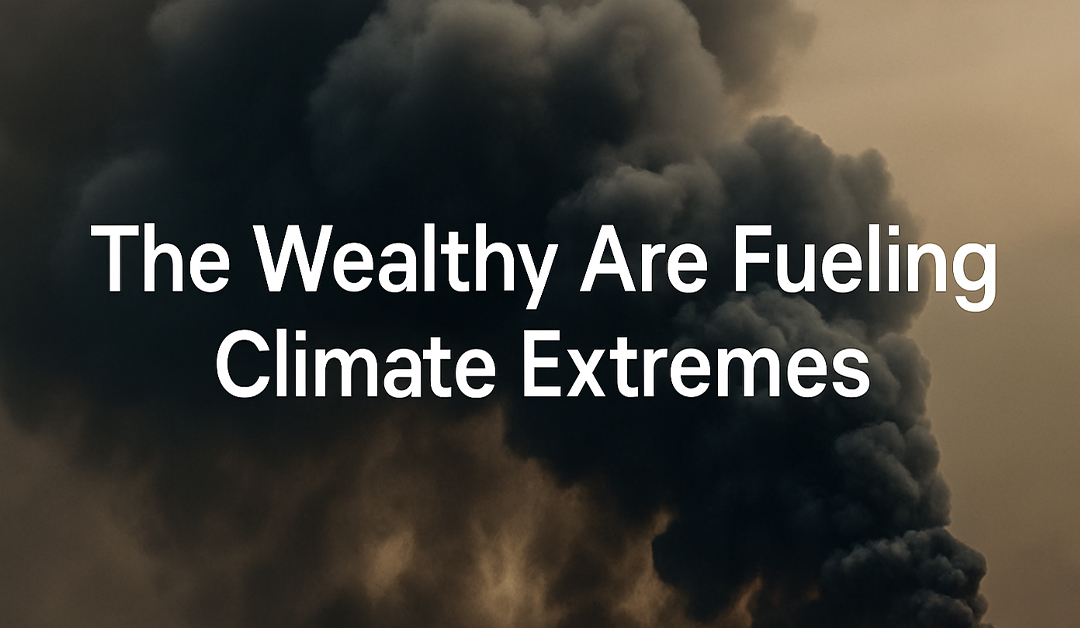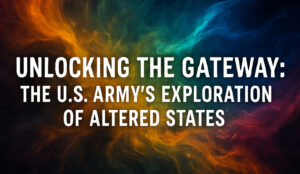A groundbreaking new study published in Nature Climate Change presents one of the most damning indictments yet of global economic inequality’s role in accelerating the climate crisis - and this time, the evidence is unmistakable.
In a sweeping analysis that spans three decades (1990–2020), scientists have revealed that the world’s wealthiest individuals - particularly the top 10%, 1%, and 0.1% - are disproportionately responsible for catastrophic global heating and extreme weather events that are devastating the planet’s most vulnerable regions.
"If everyone had emitted like the bottom 50%, there would have been virtually no additional global warming since 1990."
💸 Climate Change Is a Class Issue
The data paints a brutally clear picture:
- The wealthiest 10% of the global population are responsible for 65% of warming since 1990.
- The top 1% are responsible for 20%, and the ultra-elite 0.1% account for 8% of the increase in global mean temperature (GMT).
- These figures translate to 6.5, 20, and 76 times the global per capita average respectively.
This isn’t just about personal consumption - the carbon footprint of the wealthy includes emissions tied to their investments, assets, and ownership of production infrastructure. Their financial influence reaches far beyond their homes, cars, and yachts.
🌍 Devastating Impacts, Disproportionate Suffering
The consequences of this disparity are global - and deeply unjust.
By isolating emissions from elite income brackets and simulating "counterfactual" climate conditions had these groups not emitted, researchers linked their actions directly to an explosion of deadly climate events. These include:
- A 12.3-fold increase in 1-in-100-year heatwaves since 1990 - mostly attributable to the top 10%.
- A threefold increase in extreme droughts in the Amazon Basin, where emissions from the wealthy have obliterated ecological stability.
- Regions with historically low emissions - Southeast Asia, central Africa, southern South America - are bearing the brunt of the heat and drought, despite having contributed the least.
"Wealthy individuals in the U.S. and China have directly driven up heat extremes in regions like the Amazon and southeast Africa."
🔬 Science Behind the Blame
Using a combination of climate models (MAGICC and MESMER-M-TP), the study mapped monthly temperature and precipitation anomalies at the grid level, comparing real-world 2020 data to alternate scenarios where top emitters hadn’t released their GHGs.
These models didn’t just rely on CO₂. Methane (CH₄), a powerful but often overlooked greenhouse gas, played a pivotal role in near-term warming trends - especially considering its prevalence in livestock, oil and gas production, and waste - all sectors heavily influenced by elite investments.
🧾 Accountability, Not Just Awareness
The findings carry seismic implications for climate justice:
- The rich aren’t just consuming more - they are destabilizing the very systems the poor depend on to survive.
- Droughts, crop failures, and health crises caused by extreme heat are disproportionately hitting communities with the fewest resources to adapt.
"The emissions of the global elite are causing droughts and heatwaves that destroy lives - far from their gated communities and investment portfolios."
This goes beyond voluntary carbon offsets or vague pledges. The authors propose radical policy interventions, including:
- A global wealth tax to redress climate damages.
- Realigning global financial systems and investment flows toward climate adaptation and mitigation.
- Redistributing responsibility for climate impacts at the individual, not just national, level.
🧭 A Call for Global Climate Justice
The report is clear: unless the emissions of the ultra-wealthy are curbed, the Paris Agreement’s targets will remain a fantasy. Even more damning, the people suffering the most will continue to have no voice, no power, and no relief.
In other words: if climate change is the fire, inequality is the gasoline.
🌡️ "The 1% are not just outpacing the rest of us - they’re dragging the world toward irreversible catastrophe."
This isn’t just science. It’s a reckoning.






